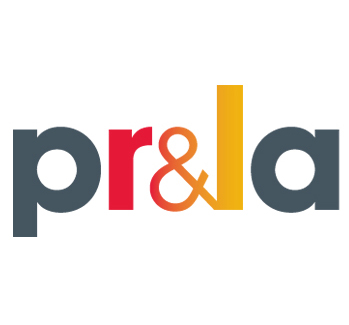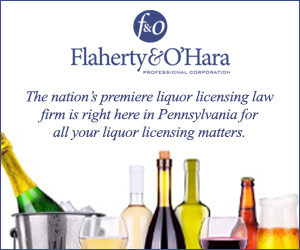State Items
Reopening Pennsylvania
On July 1, the Pennsylvania Supreme Court ruled that the Pennsylvania Legislature does not have the power to overturn Gov. Wolf’s emergency declaration.
On July 1, the Secretary of Health signed a new order requiring masks in all public spaces.
As of July 3, all Pennsylvania counties were officially in the green phase of reopening; however, Allegheny and Philadelphia counties are currently under local guidelines that are more stringent that the state’s guidelines.
On July 15, Gov. Wolf announced targeted mitigation directed at the restaurant industry. Among other things, the new order reduces occupancy to 25%, requires the purchase of a meal to consume alcohol, prohibits bar seating indoors and outdoors, and requires patrons to be seated to receive service. The new orders are reflected in the Governor’s Restaurant Industry Guidance.
Restaurants continue to be subject to additional restriction as we see case counts increase in various counties across the state. It is now more important than every that the hospitality industry ensures all employees and guests wear masks, have proper social distancing and use barriers where social distancing is not achievable.
Bills Introduced and On-the-Move
The State Legislative Budget & Finance Committee released its report on the impact of banning plastic bags or assessing usage fees. Essentially, the Committee recommended waiting on taking any further action until Pennsylvania has recovered from the COVID-19 pandemic.
HB 2615 (Stephens—R, Montgomery), which would create a $250 million grant program for restaurants, was filed in late June. Since this grant program is created via legislation, it will need to go through the legislative process before the money is accessible.
To Be Introduced (Rader—R, Monroe), would create a $15 million grant program for Destination Marketing Organizations. Similar to the Stephens bill, this is created via legislation and will need to move through the legislative process upon its introduction.
SB 1089 (Ward J.—R, Blair): Would repeal the required testing of frozen desserts.
SB 1125 (Martin—R, Lancaster): Allows School Districts to delay school tax payments for the school year beginning July 1, 2020. It is up to each individual school district if they choose to do so.
HB 2200 (Gaydos—R, Allegheny): Would allow for Association Health Plans (AHP’s). PRLA will continue to work on moving this legislation over the summer.
SB 1194 (Stefano—R, Fayette): Would provide COVID-19 liability protection to businesses that meet state standards. PRLA and other business association’s will be actively pushing this legislation over the coming weeks.
Cocktails-to-Go
Operators offering cocktails-to-go were required to obtain a transaction scan device by July 20. If you start selling cocktails-to-go after July 20, you need to obtain a scan device prior to making any sales.
Federal Items
PPP Extended
With more than $130 billion left unallocated, Congress extended the Paycheck Protection Program through August 8. This extension does not change the program, it merely extends the window to apply for a PPP loan for another five weeks. We are hoping for additional changes to be made to the PPP over the coming weeks, including a “second round” for those who drew down on the loan in the first round and opening up the loan to entities that were not covered previously.
Paycheck Protection Flexibility Act
The Paycheck Protection Flexibility Act was signed into law on June 5. The Act included several improvements for the restaurant industry such as extending the expense forgiveness period from eight weeks to 24 weeks; reducing the payroll ration requirement to 60%; increasing the loan repayment period from two to five years on new loans; allowing payroll tax deferment for PPP recipients; and extending the June 30 rehiring deadline. Read the National Restaurant Association’s full summary of changes.
SBA Released PPP Loan Data
The SBA released PPP loan data in early July, breaking the data into two categories. The data for loans above $150,000 included the borrowing entity name and address, number of jobs covered under the loan, voluntary demographic data, NAICS code, congressional district, and loan amount as a range (no specific amounts will be disclosed). With more than 4 million PPP loans below $150,000, SBA only released lender names and the total amount of PPP loans per state.
COVID IV
Sen. Wicker (R, Miss.) introduced S. 4012, titled “Restaurants Act,” earlier this summer, which contained many provisions proposed by the National Restaurant Association. However, no COVID-19 stimulus or recovery bills have targeted a specific industry, indicating that the provisions contained in the bill will likely be part of a much larger recovery package.
Congressional Republicans and Democrats are considering whether to craft a new coronavirus stimulus bill in late July, and have asked the National Restaurant Association for guidance on how best to assist the industry. The Association, in turn, asked restaurant operators across the nation to take a brief survey ranking their proposed ideas for personal and industry-wide impact. From those responses, the Association presented the Blueprint for Restaurant Revival.
Presidential Proclamation
President Trump signed a proclamation, titled “Suspending Entry of Aliens who Present a Risk to the U.S. Labor Market Following the Coronavirus Outbreak,” which extends foreign worker restrictions through the end of the year. It impacts H-1B, H-2B, J and L visas, equating to more than 500,000 legal guest workers.
CMBS Loans
Commercial Mortgage Backed Security (CMBS) loans continue to be a major focus of the American Hotel & Lodging Association (AH&L) and Asian American Hotel Owners Association (AAHOA). These loans are not able to be deferred as standard loans are and the holders of these loans, especially in the hospitality industry, are unable to make payments; the government needs to step in.
Local Items
Allegheny County Brings Guidelines in Line with State Guidelines
Shortly after Allegheny County closed bars, restaurants, and casinos due to rising COVID-19 case counts in the county, county officials rescinded their original order and issued a new one that brought the county’s guidelines more in-line with the state’s July 15 order. There are a few differences between the orders and the more stringent County guidelines should be followed. The differences include:
- Indoor and outdoor dining service must cease at 11pm in Allegheny County.
- Cigarettes/e-cigarettes are prohibited in indoor and outdoor dining areas in Allegheny County.
- Outdoor events in Allegheny County are capped at 50 individuals.
These orders came just days after the County announced the ban of on-premise alcohol consumption at all businesses. Following the alcohol ban, PRLA initiated a conversation with Allegheny County Executive Rich Fitzgerald to collaborate on guidelines to reopen County bars and restaurants safely.
Allegheny County COVID-19 Field Response Team
Allegheny County also formed the COVID-19 Field Response Team to perform assessments of restaurant operations. At bars and restaurants, COVID-FRT members will check for:
- Tables spaced far enough apart to allow for physical distancing
- Indoor occupancy capped at 25%
- Staff and customers wearing masks
- No bar seating and no smoking
- Dine-in service ending at 11pm
- Signs reminding customers of the safety precautions
Philadelphia puts the brakes on indoor dining
Right before the Fourth of July Holiday, Philadelphia officials confirmed that the City has not permitted indoor dining yet because so many operators are not following the outdoor dining guidelines. Philadelphia will no longer issue warnings to businesses that fail to comply with outdoor dining operating guidelines. Operations in violation will be required to immediately cease operations and additional fines and penalties could be imposed. As of now, indoor dining is suspended until August 1, though officials will revisit the start date each week.
Increase in cases
The Governor’s office has reiterated that they do not want statewide changes as COVID cases potentially increase. They are working with counties that are seeing an increase in cases to determine mitigation plans in those counties.
Philadelphia Predictive Scheduling
Despite coronavirus changing the entire hospitality industry, the Philadelphia Office of Labor moved forward with a July 1 deadline requiring employers to provide good faith estimates of hours to existing employees under the Philadelphia Predictive Scheduling law. While predictability pay remains suspended for the foreseeable future, all other facets of the law remain in effect.
Philadelphia City Council action
Before breaking for summer recess, Philadelphia City Council passed three bills that were signed into law by Mayor Kenney:
- Bill #200344, sponsored by Councilperson Parker, caps third-party delivery fees at 15%, requires third-party delivery apps to disclose all fees, and disclose whether or not they have an actual agreement with the restaurant.
- Bill #200328, sponsored by Councilperson Gym, authorizes employees to file complaints and take civil action against employers that are not following the state and city COVID operational guidance.
- Bills #200351 and 200352, sponsored by Councilpersons Domb and Henon, puts into statute current regulations that allow for sidewalk cafes, streeteries, and other extension-of-premise during the COVID pandemic.
Council is expected to consider the Public Health Emergency Leave legislation when it returns to session in September.
Regulatory Items
PennDOT announced that expiration dates for driver licenses, identification cards, and learner’s permits, will be extended until July 31, 2020.
PennDOT also announced that it now will include a nonbinary designation for Pennsylvania driver’s licenses and identification cards.











